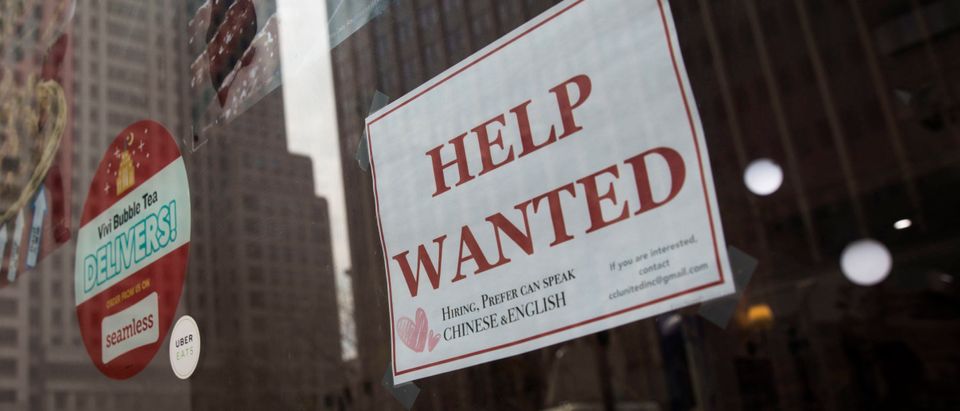Someone once said “if you don’t read the newspapers, you’re uninformed, but if you do, you’re misinformed,” and a recent Washington Post article thoroughly lives up to that aphorism.
The article in question is titled “States that cut unemployment [benefits] early aren’t seeing a hiring boom, but who gets hired is changing.” By examining just a tiny sliver of overall employment, the article misrepresents labor conditions at large, and its spurious headline misleads the reader into thinking a harmful policy has no effect.
When the federal government first began giving weekly unemployment bonuses last year, fellow economists and I predicted that the policy would add millions to unemployment because people could receive more for staying home than for working. Milton Friedman used to say that if the federal government were put in charge of the Sahara Desert, in five years there would be a shortage of sand. With unemployment bonuses and other misguided policies, the government has distorted the labor market so severely that we now have 9.5 million unemployed and 9.2 million unfilled jobs. It is simultaneously a shortage and a surplus, and the government did it about four times faster than Friedman predicted.
When 22 states ended their participation in the federal bonus program in June, it was the beginning of a tremendous opportunity for analysis. Since there is a noticeable increase in job searching among the unemployed when their benefits will expire within the month, there should have been a conspicuous increase in employment among the states that ended the bonus. But the Washington Post article claims that no such increase occurred.
The study cited by the Washington Post examined only some personal service sector small businesses, a diminutive sample which is not representative of the entire labor market. The study also failed to separate out all of the 22 states which ended the unemployment bonus in June. Instead, it included only 12 states from an abnormally small window of just eight days, thereby excluding the other 10 states that ended the bonus on one of the other 22 days in June. No explanation was given for this, or other, peculiarities.
It is not surprising that such an idiosyncratic and flawed analysis would yield so backwards a conclusion. After all, if you torture the data enough, it will confess.
Fortunately, we have much more comprehensive statewide data across all sectors of the economy courtesy of the Bureau of Labor Statistics. These data are more indicative of the labor market in toto, and they demonstrate that states which ended the bonus have an employment growth rate a third faster than states which continued the bonus.
From May to June, states that ended the bonus early grew their employment rolls by 0.53% from the month prior, while those that continued the bonus rose by only 0.40% over the same period. Although these may seem like insignificantly small numbers, the states that ended the bonus in June added 283,200 jobs that month, growing 33% faster than their counterparts that continued paying the bonus. A difference of a third is highly significant.
While the Washington Post headline is unfortunately misleading, and the study cited by the article is unsound, the larger issue is the astonishing sum of benefits which the unemployed can receive. In addition to unemployment insurance and bonuses, there are health care subsidies, food stamps, $3,000-a-child payments, rental assistance and more. Expanding these benefits over the last year and a half has proven to be a mistake.
In June, a fellow economist and I wrote in the Wall Street Journal about our own study which highlighted the staggering government assistance for which the unemployed were eligible. In 19 states, a family of four with no one working can receive the equivalent of over $100,000 a year in salary. Under those conditions, of course people will stay home and not work. We expect people to be rational, not Saints.
Every government economic policy deserves an appropriate level of scrutiny from its constituency before it is implemented, and then it warrants thorough empirical testing to determine its worth. It seems media headlines today require the same degree of scrutiny by the public.
E.J. Antoni, Ph.D., is an economist at Texas Public Policy Foundation and a Visiting Fellow at Committee to Unleash Prosperity.


